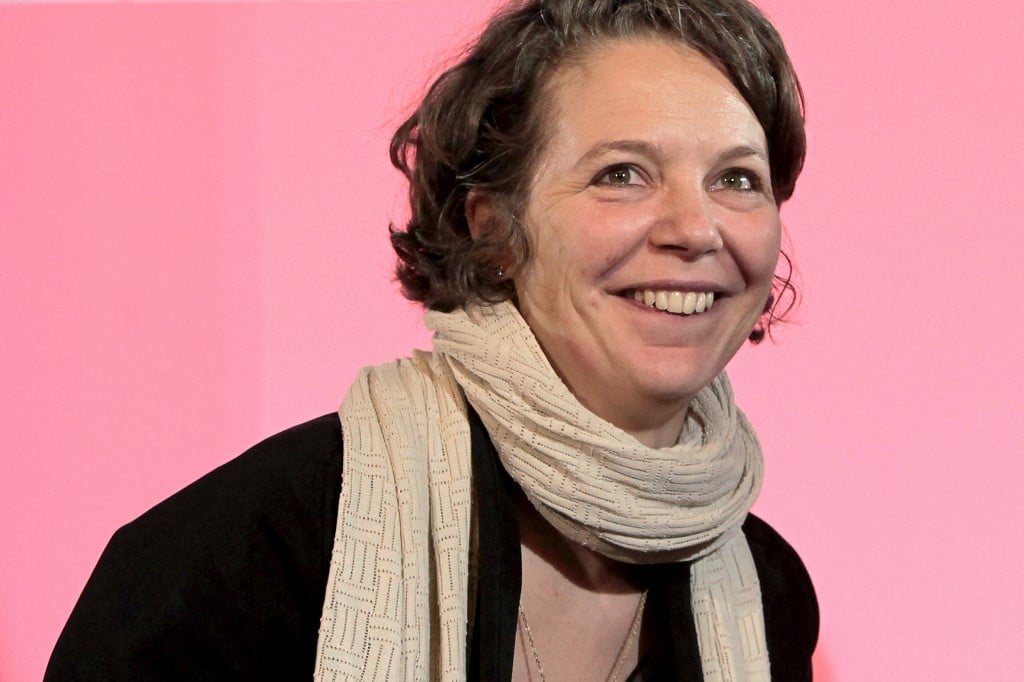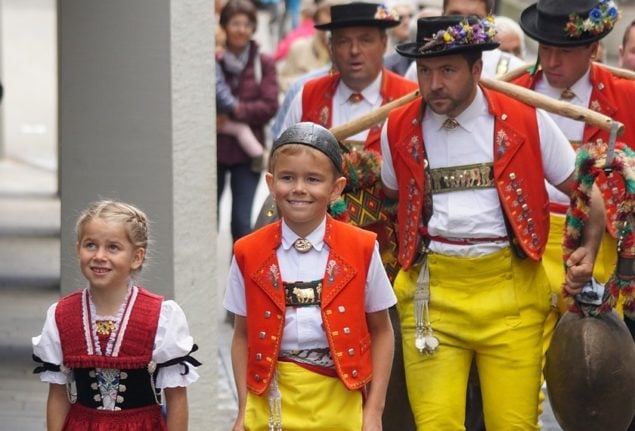All of the books we’ve chosen are also available in translation if your language skills aren’t quite novel-reading-ready just yet.
Martin Suter, Small World (German, available in translation)
Zurich-born ex-copywriter and creative director Suter has been pretty prolific since he turned his hand to novels – he’s written 14 since 1991, as well as four plays and nine collections of his columns for Swiss newspapers.
Sadly, not all of them have made it into translation (yet), but his breakthrough 1997 novel Small World is a great introduction to his work. It’s a fast-paced psychological thriller with well-drawn characters that follows Konrad, a long-time sort-of friend-sort-of member of staff to the mysterious and super-wealthy Koch family.
Things start to go wrong as Konrad becomes increasingly forgetful. This is initially attributed to his penchant for a tipple, but it soon becomes clear he has Alzheimer’s.
As his memories of the present are replaced by those of the distant past and the complicated truths that lurk below the surface, he starts to represent a threat to the powerful Koch family.
It’s also spawned a (not-quite-as-good) film adaptation starring Gerard Depardieu in 2010 (Je n’ai rien oublié).

Melinda Nadj Abonji, Tauben Fliegen Auf (Fly Away, Pigeon)
Nadj Abonji was born in a part of Hungary that now belongs to Serbia and moved to Switzerland at the age of five to join her refugee parents.
This split between two places inspired this novel, which tells the story of the Kocsis family, who immigrated to Switzerland in the 70s knowing just one word – ‘work’, and the generations that follow them.
But it’s a heart-wrenching tale – they have to deal with prejudice from their adopted community despite their best efforts to assimilate, as well as seeing from afar the devastating impact of the Balkan War on their loved ones back home.
The perfectly paced novel beautifully merges the history and culture of two very different places and brings to life the challenges – both practical and emotional – of the immigrant experience and how it feels to leave part of yourself behind.
Zoe Jenny, Das Blütenstaubzimmer (The Pollen Room)
This was Basel-born Jenny’s first novel. Published in 1997, it’s since been translated into a whopping 27 languages.
It’s also the best-selling debut novel by a Swiss author if you needed another reason to give it a go.
The slim novella centres on Jo, the vulnerable and lonely product of a broken home and who, at 17, is still searching for love after her mother abandoned her when she was small.
It’s a haunting story, full of evocative imagery and spare prose that works almost as well in the sensitive translation as in the original text.

Joel Dicker, La vérité sur l’affaire Harry Quebert (The Truth about the Harry Quebert Affair)
Switzerland loves a good Krimi and Joel Dicker does a great job at weaving unexpected twists and turns into this postmodern murder mystery.
This easy page-turner sold over three million copies all over the world and was made into a mini series in 2018 starring Patrick Dempsey.
It tells the story of Marcus Goldman, a successful-but-shallow young American novelist in New Hampshire (where Dicker is said to have spent his summers), who is struggling with writing his next book. He goes to stay with his college professor, the eponymous Harry Quebert, to try to kickstart his writing.
But then Quebert is accused of the murder of a teenager who disappeared over 30 years ago and Marcus must work to clear his mentor’s name and find out the truth about what happened. In doing so, he finds the subject of his next book and the line between murder investigation and book-writing begins to cross over.
Anne Cuneo, Le trajet d’une riviere (Tregian’s Ground: The Life and Sometimes Secret Adventures of Francis Tregian, Gentleman and Musician) (French, available in translation)
Cuneo was born in Paris to Italian parents, but grew up in Switzerland, where she also studied. She wrote 15 novels, as well as dozen of plays before she died in 2015.
If you love the music and history of the 16th century, then this 1993 book is for you. Mixing fact and fiction, it recounts the incredible story of Francis Tregian, the little-known copyist and compiler who is credited with the Fitzwlliam Virginal Book, the main source of keyboard music from the mid-1500s to the early 1600s in England. Containing some 300 works, it’s the most important surviving manuscript from that era.
Despite being born into nobility, Tregian didn’t have an easy time of it: Catholic at a time when England was under Queen Elizabeth’s Protestant rule, his family fortune gets seized and he has to fend for himself. Fortunately, his musical and language abilities mean he is able to do well abroad as he travels across Europe, sharing music with many famous composers – from Monteverdi to William Byrd– and hanging out with Shakespeare.
Do you have any must-read Swiss authors you think we should write about? Let us know in the comments!



 Please whitelist us to continue reading.
Please whitelist us to continue reading.
Member comments